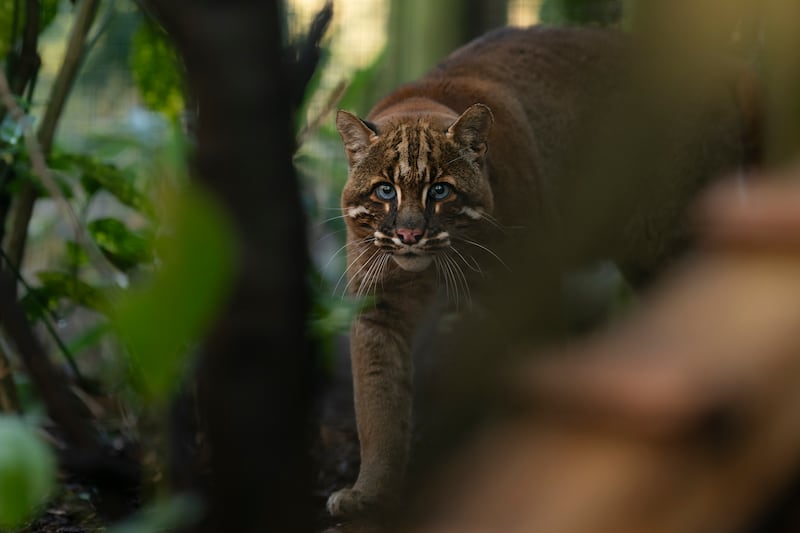KitKats, beer and digestive biscuits are among much-loved products that have been tweaked or recreated to support rather than deplete nature.
The Ellen MacArthur Foundation invited food and drink brands from across the world to redesign existing products – or make entirely new ones – with circular economy principles in mind.
The 18-month challenge explored measures like diversifying crops to boost soil health, choosing lower-impact ingredients, using surplus and waste from ingredients, and employing a whole host of regenerative farming methods.
Crwr Kelp, a pale gold lager infused with seaweed by farmers in Wales, and Nestle’s KitKats are among the 141 products that have met the criteria and will hit shelves this week.
Others include a unique take on the digestive biscuit, which has been designed using upcycled apple pulp, and burgers made with a blend of seaweed that helps to sequester carbon and restore marine ecosystems.
Granola made from brewer’s spent grain, and dried banana chips that are sliced to include the peel also join the offerings.
High-end retailers like Waitrose, Abel & Cole and Fortnum & Mason have started selling a selection of the products in stores and online.
Through the challenge, the Ellen MacArthur Foundation sought to demonstrate how circular redesign can drive systemic change in the food industry, which is one of the biggest drivers of biodiversity loss and greenhouse gas emissions worldwide.
The charity, alongside the retailers, will monitor which products are popular and use the data gathered to share findings with the industry more widely.

Reniera O’Donnell, food initiative lead at the Ellen MacArthur Foundation, said: “We asked the question, if we made different design decisions around ingredients for selection, could we have a much more positive outcome for nature.”
She said the team have proved this, with the final products consistently outscoring their industry standards across several key indicators, including emissions, soil health, labour risk, animal welfare and biodiversity.
“It’s passed every expectation that we had,” she said, adding that not only do the products have a better impact on nature but they are “really, really delicious”.
Challenged on how the foundation verified the nature-positive claims behind the products, Ms O’Donnell said the team were unable to gather primary data on all suppliers themselves.

Instead, participants had access to HowGood’s food sustainability platform, which holds primary and aggregate data on tens of thousands of ingredients worldwide.
“The data is not perfect,” she said. But, to mitigate this, her team regularly spoke to participants about sourcing lower-impact ingredients and using a global farm metric framework to guide their conversations with suppliers.
The plan is to now share the data and learnings with the wider industry so consumer firms can work with suppliers to similarly cut their impact, she said.
“That’s the next four months – showing the food industry the actual tangible difference so: ‘If you used this design decision, this is how much water, carbon dioxide you save, this is the biodiversity that goes up’.”
However, barriers to scale include cost as well as consumer demand, with many of the 141 products selling at a premium.
“We need consumers to drive business to make change because business is driven by what consumers want,” Ms O’Donnell said.
“But ultimately consumers can only make decisions within the food system in which they find themselves.”

Ben Thomas, senior environment manager at Waitrose, described consumer demand for nature-friendly foods as “a really interesting push and pull aspect”.
“Ultimately we’re not going to put stuff on shelves that isn’t going to sell. It just makes no sense,” he said.
But he added that the selected products have hit all the key requirements of cost, safety, stock and taste to appear on Waitrose’s shelves.
“We’re really keen for them to do well,” he said.
Challenged on the products selling at premium prices and in more expensive retailers, Ms O’Donnell said the project has proved what it set out to.
“The next thing is how do we take all of that and tell the stories in a way that the Tescos and the Aldis and the Lidls go ‘Actually, we can do this too’,” she said.
Mr Thomas said Waitrose also wants to see other retailers get involved in the process so the scale follows and the positive impact is maximised.
“This is about system change,” he said. “We can’t do it in isolation. We’re one piece in a very large puzzle.
“But it’s the start of a journey. We have to start somewhere is ultimately what we’re trying to do here and then build scale.”
Signage on shelves will identify products as part of the “nature in mind” project and shoppers will be able to scan QR codes to learn more about their origin and story.








